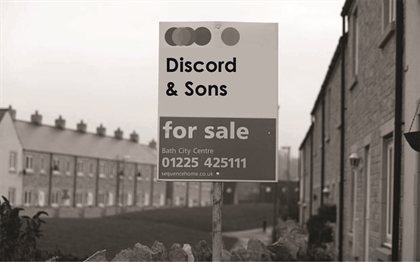Collaboration with Marshall Brill
https://soundcloud.com/marshallbrill
Marshall is Producer & DJ based in Glasgow, Scotland, with releases on West End Communications & The Exquisite Pain Recordings. We're good friends from teenage years in Shetland and we've played in various bands over the years. He DJ'd at the opening night of The Art of Ping Pong in 2012 curating an excellent set of table tennis inspired music including the awesome
Inspector Norse by Todd Terje.
The Cafe Del Marsh EP was released earlier this year, check it out below.
Sound is a huge part of pinball and what is so alluring and mesmerising about it: I knew this was something I didn't want to leave to the last minute.
It's been vital collaborating and asking for help in some aspects of this ambitious project, particularly when the area of expertise is out with my skill-set. So no surprise sound is one of those areas, and has usually been something left as an after thought rather than a planned out element in past projects.
I was behind in finalising documentation about the custom pinball game in order to commission any sounds. Having heard the Cafe Del Marsh EP, particularly the first track
Spanish Wine, I knew I wanted to work with Marshall. Leaving as open brief as possible for free reign in the style, with some guidelines for how the sounds could work with the game, visuals of the printed artwork, and some extra pinball inspiration all sent via the
Audio Requirements document.
This is the first time I've written a document to pass onto someone to commission music, so there were a few extra technical questions about how the game works (I've since added these to the original document). But this is a learning process, I'm sure I will be able to create a better document faster in future. I always imagine writing types of things as big scary documents, but they are actually really helpful to lay down direction in a project, I tend to get carried away or distracted.
Within hours Marshall had got back to me with a rough sketch. There are a few bars of the four different sections of music which run during the game; Intro, Mode Start, Jackpot, End Ball.
"I thought because of the colours of the pinball machine (bright primary colours), in your face digital sounds might work best. Inspired by the tones in the video of the Greatest Pinball machines of the 90s"
Upon hearing the sketch while standing next to the playfield, I could just feel how things were starting to come together, the sounds really relate to the visual style of the game, bolstering it up as a strong pinball game and artwork.
Although in total delight and excitement about the sketch, I gave a little feedback to help Marshall finalise the music.
A week later I was supplied with a
development as well as the final loops to be used in the pinball machine.
The process
Clearly knowing each other has helped the process, I'm not sure approaching someone I didn't know so well would have been such smooth sailing. Although my short time frame may have been quite an ask, I think it shows what can be done in a short time and my belief that a deadline helps move a project on to another level.
Marshall's producing process in a way relates to my own creative making, when there are some days when you can make and tinker for hours and still not be happy with the outcomes.
"Its quite fun working with conditions set, not something i do very often at all very easy to get caught tweaking stuff infinitely and never finishing..."
It's definitely interesting and exciting hearing the response to the game artwork and the brief, seeing how someone approaches the topic from a different creative viewpoint.
We're both interested in the life of the track past the pinball machine. Marshall has plans to continue working on the song to get it to the point of release. I will also use the full track in promo videos I plan to make during degree show.
Formatting Issues
The only issue that has arisen is the format of the audio when installing for use of the MyPinballs Custom Controller. There is a very specific audio format due to the format the boards (running Arduino) can support. It's easy to quickly update using the built in SD card, but not having much knowledge in audio formatting it took me some time to work out a system for conversion.
WAV encoding for the sound files should be:
Sample Rate: 22kHz
Encoding: PCM
Bits Per Sample: 8
Channels: 1 (Mono)
After some working around I figured out a system for converting the supplied audio for use with the control boards. My process for conversion is as follows:
- Convert audio from 44 kHz -> 22khz using a generic online audio convertor
- For this convertor I use settings:
- Format: WAV
- Quality: TAPE
- Channels: 1
- Taking the converted audio into Audacity
- In Preferences change the default sample rate to 22050 hz
- Export with settings:
- File Type: Other Uncompressed Files
- Header: WAV (Microsoft)
- Encoding: Unsigned 8-bit PCM
After this conversion the sounds work perfectly fine, and a quick test of starting a game



















































